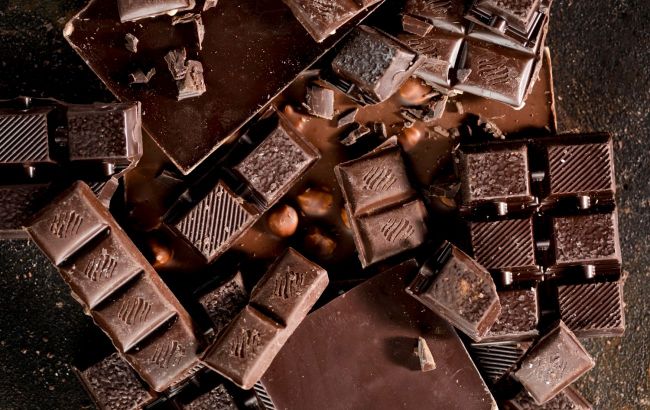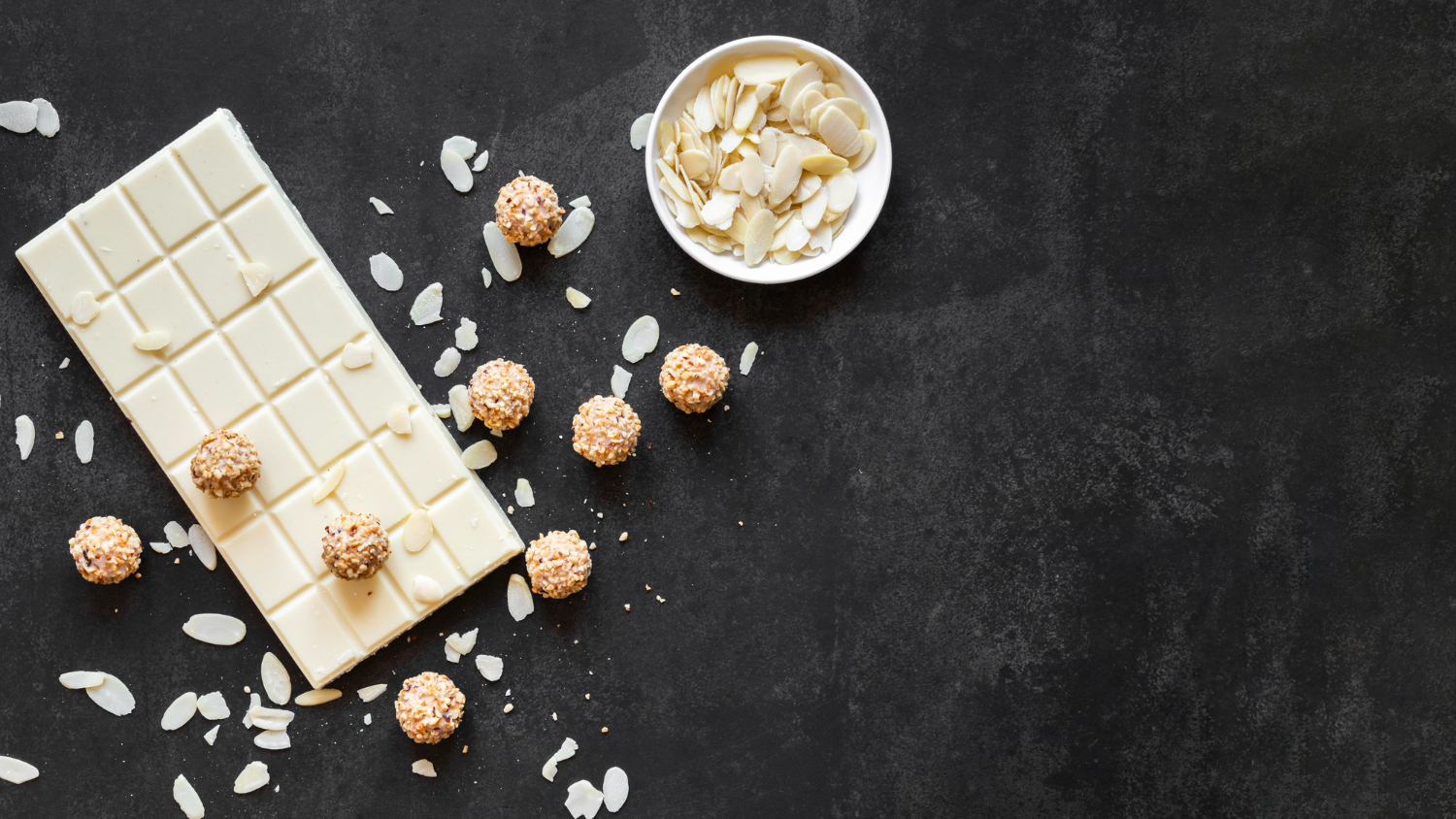2 types of chocolate that you should never eat
 Types of chocolate that you should never eat (photo: Freepik)
Types of chocolate that you should never eat (photo: Freepik)
Chocolate is probably one of the most popular delicacies. Dark chocolate, milk chocolate, white chocolate, berry chocolate, chocolate with nuts, fruit - the variety is amazing! But some types of chocolate are better not to eat.
Sources used to prepare the material: ScienceFocus, MedicalNewsToday, Pub Med, Health, Healthline, WHITAKERS.
What are the benefits and harms of chocolate
The antioxidant potential of chocolate can have a number of health benefits. The higher the cocoa content, as in dark chocolate, the more benefits. Dark chocolate may also contain less fat and sugar, but it is important to check the label.
Eating chocolate can have the following benefits:
- lowering cholesterol levels;
- preventing cognitive decline;
- reducing the risk of cardiovascular problems.
However, any chocolate is not a healthy food. And it can lead to the following consequences:
- Weight gain - chocolate can be high in calories due to its sugar and fat content.
- Tooth decay - the high sugar content in most types of chocolate can also cause tooth decay.
- Migraines - some people may experience more frequent migraines with regular consumption of chocolate due to the tyramine, histamine, and phenylalanine content in cocoa.
- Negative impact on bone health - excessive consumption of chocolate can cause bone structure disorders and osteoporosis.
In addition, the cocoa used to make chocolate contains heavy metals such as cadmium and lead. Since dark chocolate contains more cocoa than milk chocolate, it has higher levels of heavy metals.
Excessive levels of cadmium in the body can cause vomiting and diarrhea, and long-term exposure can lead to kidney, reproductive, or nervous system problems.
What kind of chocolate is the most harmful
Every type of chocolate can be considered unhealthy due to its sugar and fat content, but some are better not to consume.
White chocolate
Although this type of chocolate is the sweetest, it is also the worst - it has more calories than milk chocolate and more sugar than dark chocolate, which increases the risk of tooth decay and heart disease.
In addition, white chocolate has minimal nutritional value - it is not a nutrient-dense food that provides a significant amount of essential vitamins, minerals, and other beneficial compounds.
White chocolate does not contain cocoa solids, which means that it does not provide the same potential health benefits as dark chocolate - thanks to the flavonoids and other beneficial compounds contained in cocoa.
It consists of 20% (or more) cocoa butter and up to 55% sugar, as well as milk powder, lecithin, vanilla, and other flavors.

White chocolate is the most harmful (photo: Freepik)
Chocolate with fruits and berries
Chocolate-covered strawberries are delicious, but chocolate, regardless of the type, is a high-calorie food that contains significant amounts of sugar and fat, especially saturated fat - a type of fat we want to limit in our diets because of its association with an increased risk of heart disease.
And fruits and berries such as strawberries are also high in calories, so this product has a nutritional deficiency.
The combination of chocolate, berries, and fruit, especially white chocolate and bananas, increases the sugar and calorie content of the mixture, which can potentially contribute to weight gain and other health problems if consumed in excess.
However, the decisive factor is the regularity of consumption and the amount of sugar in the diet in general. So, if your diet is generally balanced and you choose chocolate, which is rarely consumed, according to the ingredients and recommendations of a nutritionist, your health will not suffer as much as it would if you were to eat it all the time.
By the way, earlier we told you which product can help you lose weight when added to coffee.
This material is for informational purposes only and should not be used for medical diagnosis or self-treatment. Our goal is to provide readers with accurate information about symptoms, causes, and methods of detecting diseases. RBС-Ukraine is not responsible for any diagnoses that readers may make based on materials from the resource. We do not recommend self-treatment and advise consulting a doctor in case of any health concerns.

